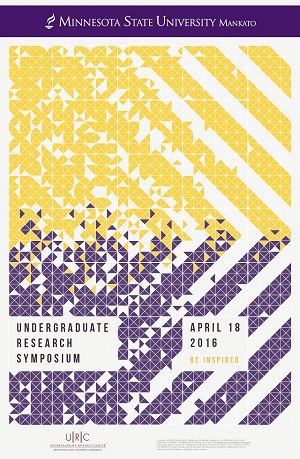How Different Measures Affect Cognitive Ability in People with Aphasia
Location
CSU Ballroom
Start Date
18-4-2016 2:00 PM
End Date
18-4-2016 3:30 PM
Student's Major
Speech, Hearing, and Rehabilitation Services
Student's College
Allied Health and Nursing
Mentor's Name
H. Sheen Chiou
Mentor's Department
Speech, Hearing, and Rehabilitation Services
Mentor's College
Allied Health and Nursing
Description
It is challenging to assess cognitive ability in people with language impairment due to a brain injury (aphasia) because most cognitive tasks are linguistically-based. The first research question was: does a person with aphasia perform differently between two aphasia friendly cognitive tasks? Second, does timed- versus time-free measures influence their performance? Fourteen participants with different types and severities of aphasia completed symbol trails and design generation from the Cognitive Linguistic Quick Test within three-minute time limit (timed condition) and then modified to unlimited time (time-free condition). Both tasks measure the persons' ecutive functions, visuospatial skills, and attention. Accuracy measure was calculated by the total number of correct designs (or lines) divided by total number of attempts. Efficiency measure was the total amount of time spent on the task divided by the total number of correct responses, which indicates the participants' effort to complete the task. The results indicated that, without time constraint, people with aphasia demonstrated similar accuracy performances between the two cognitive tasks; however, they completed the symbol trail task more efficiently than the design generation task. Moreover, people with aphasia performed better at the design generation task but not the symbol trail task without time constraint compared to the three-minute limit. The findings supported that people with aphasia demonstrated difficulties in their ecutive functions, attention and visuospatial skills. The design generation task appeared to be a more challenging task for people with aphasia because they appeared to put more effort into completing the task.
How Different Measures Affect Cognitive Ability in People with Aphasia
CSU Ballroom
It is challenging to assess cognitive ability in people with language impairment due to a brain injury (aphasia) because most cognitive tasks are linguistically-based. The first research question was: does a person with aphasia perform differently between two aphasia friendly cognitive tasks? Second, does timed- versus time-free measures influence their performance? Fourteen participants with different types and severities of aphasia completed symbol trails and design generation from the Cognitive Linguistic Quick Test within three-minute time limit (timed condition) and then modified to unlimited time (time-free condition). Both tasks measure the persons' ecutive functions, visuospatial skills, and attention. Accuracy measure was calculated by the total number of correct designs (or lines) divided by total number of attempts. Efficiency measure was the total amount of time spent on the task divided by the total number of correct responses, which indicates the participants' effort to complete the task. The results indicated that, without time constraint, people with aphasia demonstrated similar accuracy performances between the two cognitive tasks; however, they completed the symbol trail task more efficiently than the design generation task. Moreover, people with aphasia performed better at the design generation task but not the symbol trail task without time constraint compared to the three-minute limit. The findings supported that people with aphasia demonstrated difficulties in their ecutive functions, attention and visuospatial skills. The design generation task appeared to be a more challenging task for people with aphasia because they appeared to put more effort into completing the task.
Recommended Citation
Hanson, Kristina and Jade Mussehl. "How Different Measures Affect Cognitive Ability in People with Aphasia." Undergraduate Research Symposium, Mankato, MN, April 18, 2016.
https://cornerstone.lib.mnsu.edu/urs/2016/poster-session-B/2




